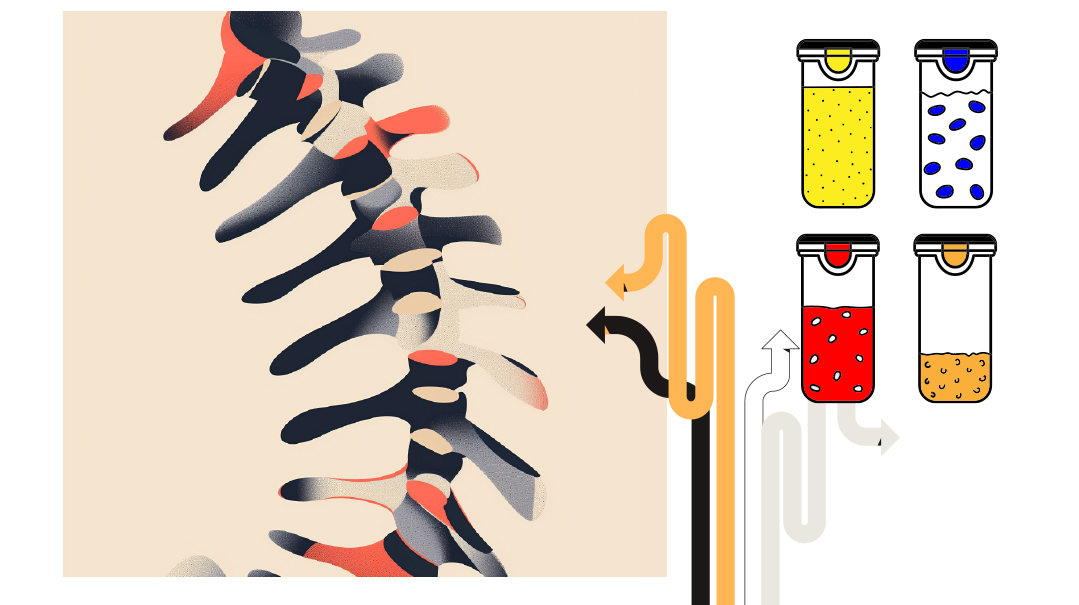Clueless No Longer
| November 15, 2022Many women feel a lack of confidence when it comes to their financial knowledge

Clueless No Longer
Sara Glaz- Aloni
NOlonger fresh out of seminary, Leah had been working for a few years and acquired a tidy sum in her bank account. Malky, a friend from high school, invited her to coffee. After small talk, Malky got to the point. “Yes, you still might be single, but now’s the best time to do financial planning. It’s silly to keep cash in a checking account. You need to put it to work! You’re losing money because of inflation! Have you ever thought of insurance? What about your retirement? Yes, it’s decades away but you need to start saving now! Turns out, I’m a financial planner and I can help you.”
As Malky rambled on and on, Leah didn’t have the heart to tell her that she had no clue what Malky was talking about. Finally, Malky took a breath and finished with, “So, what about getting started with a full financial makeover… TODAY!”
Leah didn’t grow up talking about money, nor was it ever a topic of conversation among her friends. Whether stocks went up or down — it was all the same gobbledygook to her. However, now that she was “in the real world,” she knew she had to start figuring out how to manage her finances. But should she follow Malky blindly? Should she try to figure out what Malky was talking about? How? Should she just call Ephraim, her older, money-savvy brother and ask him for help? The problem was that Leah didn’t even know what questions to ask. She was too embarrassed and felt like the most ignorant girl in the world.
Leah isn’t alone. Many women feel a lack of confidence when it comes to their financial knowledge. In fact, in a March 2021 research study entitled Fearless Woman: Financial Literacy and Stock Market Participation, women disproportionately answered “do not know” to financial questions relative to men. Yet, interestingly enough, when that option wasn’t available, women often answered the question correctly!
What should women like Leah do? How should Leah deal with her lack of knowledge and lack of confidence? And how should she respond to Malky? Here are a few points to keep in mind:
- Don’t turn red so easily. A financial advisor tells you to open an IRA and you have no clue what it is? That’s okay! How should you know? Don’t feel embarrassed, and don’t give up so fast. Stand tall and just say, “What’s an IRA, how does it work, and how could it help me?” If the financial advisor isn’t willing to give you an adequate answer, find another advisor.
- It’s okay to shop around for a professional you click with and feel comfortable working with. However, and here’s the big however, insurance agents, mortgage brokers, financial advisers, etc., are salesmen. They can be very charismatic and know how to woo you. Keep in mind that when you open an account or sign on the line, they are making money. Even if they say they aren’t, they still might be. While the financial services industry is highly regulated and has come a long way in terms of protecting the consumer, you can still end up being sold a product or service that benefits the financial professional more than you! Therefore…
- Get referrals from friends and family. Ask people you trust who they’ve used. Consider a financial professional with a strong track record of satisfied clients. Just because they work for a “big” company or they’re your cousin doesn’t mean they’re competent.
- Read and ask questions. When it comes to your finances, it helps to be very knowledgeable. Some people start with a basic personal finance book. However, keep in mind that they also tend to push a philosophy, such as Dave Ramsey and his Total Money Makeover. There’s no one-size-fits-all approach to your finances and these books can sometimes promote a less than practical approach, especially for a frum family. Consider sitting down with family members or a knowledgeable friend, and just ask questions. The more you ask and read, the more you’ll know, and the more confident you’ll feel to ask more questions and make good decisions.
Sara Glaz-Aloni is an investment advisor and financial planner at The Munk Wealth Management Group in Cedarhurst, New York.
Then What?
Sarah Rivkah Kohn
IN moments of panic and hysteria, we often aren’t even sure what it is we’re actually most worried about. Two words, when asked calmly and respectfully, can be helpful: Then what?
Here’s what it would look like:
Self: I’ll never manage to close that deal if I don’t have the right papers with me, and I left those papers at home!
Calming self: Then what?
Self: Then I won’t have the funds I need because this huge deal will fall through.
Calming self: Then what?
Self: Then I’ll have to work so much harder — it would take ten of our regular deals to make up for this one.
Calming self: Then what?
Self: Ummm… I’ll be fired. Although the truth is that I’m really good and quick at bringing in small deals…You know what? I’m giving this meeting my best. But, worst-case scenario, if the deal falls through, I’ll work harder at the smaller deals to make up for this loss.
This method can also be used when speaking to others, but must be done with total acceptance of any and every response, ridiculous as they may sound. They are all part of the process to keep the train of thought going. Research shows that by uncovering the core fear, we often become far less anxious because that bottom line concern is often far more manageable than the terror of the unknown.
Sarah Rivkah Kohn is the founder and director of Zisel's Links and Shlomie’s Club, an organization servicing children and teens who lost a parent.
A Solution, Not a Problem
Shira Savit
Many of us who have eating challenges view them as a problem: “I have an overeating problem.” “I have issues with binge eating.” “My emotional eating is destroying me.”
Instead, I suggest viewing this unwanted eating as a SOLUTION. In other words, emotional eating is not the problem, it’s the solution: it’s helping us cope, it’s numbing us from feeling pain, it’s helping us unwind after a stressful day.
Sometimes the solution works in the moment, but afterward we are left feeling much worse, both physically and emotionally. If that is the case, after we acknowledge our unwanted eating as a solution, we can ask ourselves: what are alternative solutions that might help me now, instead of turning to food?
Shira Savit, MA, MHC, INHC is a mental health counselor and integrative nutritionist who specializes in emotional eating, binge eating, and somatic nutrition. Shira works both virtually and in person in Jerusalem.
(Originally featured in Family First, Issue 818)
Oops! We could not locate your form.







